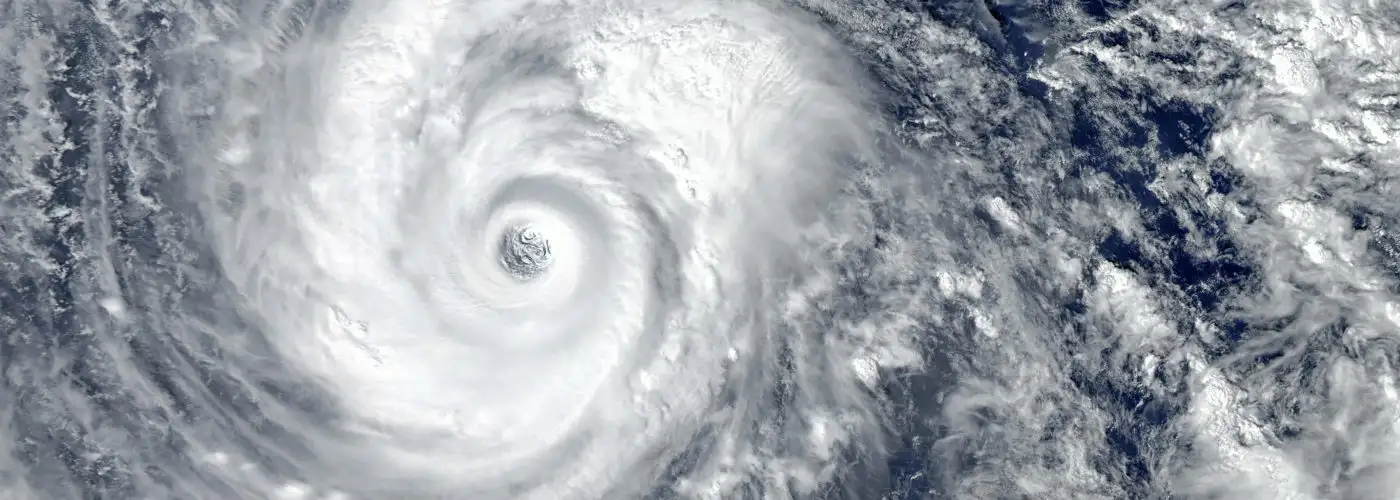Booking a tropical Caribbean or seaside vacation during hurricane season is always something of a gamble. The statistical chances of a hurricane impacting your trip are rather slim, but certainly not zero. And while some years are quiet, with only a handful of named storms threatening tourism areas, overall the trend appears to be heading toward an increase in hurricane intensity.
Understandably, this might have you considering hurricane travel insurance for your next trip to a hurricane-vulnerable area. But there are a few things you should know before buying coverage.
You Have to Buy Well in Advance
As with all forms of insurance, hurricane travel insurance typically protects you against hurricanes that could happen. If you wait to buy coverage until a hurricane appears imminent, has formed, or has been named, insurance companies can claim the storm in question was a “foreseeable event,” which is ineligible for coverage. Every insurance policy is different—some stipulate that you must purchase coverage 24 hours prior to the storm being named, while some require you to purchase even sooner.
Bottom line: Don’t wait until the storm is barreling toward your destination. If you’re traveling to a potential strike area during peak hurricane season, buy insurance well in advance.
A Flood of Fine Print
It’s no secret that insurance companies load their policies with fine print. Hurricane travel insurance is no different. Travel insurance providers have very particular parameters for what “counts” as a hurricane, at least in terms of covering customers. The threat of a hurricane usually isn’t enough to qualify—the hurricane has to directly impact your travel.
Insurance provider Travel Guard explains that if the hurricane “prevents your travel or directly affects your accommodations, you may be entitled to Trip Cancellation or Trip Interruption benefits.” However, making an independent choice to cancel in anticipation of inclement weather is not covered. For example, unforeseen storm damage to your accommodations prior to departure may be covered by your plan (“subject to the terms of the insurance policy”), but a choice to cancel your reservation in anticipation of potential damage would not qualify.
Cancellation vs. Interruption vs. Delay
Hurricane travel insurance plans (and most travel insurance plans) typically cover three primary scenarios, with different levels of coverage: Advance cancellation, trip interruption, and delay. Each is fairly self-explanatory, but cancellation covers the full cancelling of your trip prior to departure. Trip interruption covers your losses for the unused portions of a trip cut short by a hurricane, plus transportation expenses to get you home. Trip delay coverage takes care of meals, lodging, and other expenses incurred when a trip is delayed by weather.
The bar for cancellation coverage is fairly high. In most cases, your provider, such as an airline or tour company, must completely cease services for at least 24 hours as a result of the hurricane. This can include a resort shutting down due to damage from a hurricane prior to your trip. The point is, you can’t typically elect to cancel your trip due to a hurricane (except for those who purchased one specific type of insurance; more on that below). Your trip has to be cancelled by your providers for the insurance to take effect.
The same goes for trip interruption and trip delay coverage. If you choose to leave because you’re worried about an actual hurricane heading roughly in your direction, your policy will likely not take effect. Your provider must postpone all services for a short period of time for coverage to apply.
Bottom line: You don’t get to decide when your insurance kicks in, so you need to understand exactly how your policy defines your coverage threshold.
Cancel for Any Reason
One way to avoid all these rules and stipulations is a policy that lets you cancel for any reason (CFAR). These policies are exactly what they sound like: They let you cancel for any reason, including if you’re worried about a hurricane that could affect your trip, but they cover only cancellation; interruption coverage remains separate. CFAR coverage is usually pricey, and comes as an optional add-on to regular insurance. It doesn’t always offer the same level of reimbursement, but it generally provides the most reassurance that you’ll get something if and when you’re worried about a hurricane.
Where to Compare
There are dozens of sites that let you shop for hurricane travel insurance. The best place to start is a comparison site that lists options from multiple insurance providers, such as SquareMouth, InsureMyTrip, QuoteWright, or TravelInsurance.com. From there, make sure you evaluate your policy closely on the actual insurance provider’s site. NerdWallet also maintains a very comprehensive list of insurance providers and comparison sites if you’d like a longer list of options.
You Might Also Like:
• The Best All-Inclusive Vacations Under $500, Including Airfare• The One Lie You Should Always Tell While Traveling
• Traveling with Medications: What You Need to Know
• The Most Beautiful Places in Ireland
• The Best Travel Pants for Men and Women
We hand-pick everything we recommend and select items through testing and reviews. Some products are sent to us free of charge with no incentive to offer a favorable review. We offer our unbiased opinions and do not accept compensation to review products. All items are in stock and prices are accurate at the time of publication. If you buy something through our links, we may earn a commission.
Related
Top Fares From
Today's Top Travel Deals
Brought to you by ShermansTravel
Italy: 8-Night Rome, Florence & Venice...
Infinity Worldwide Vacations
 vacation
$2335+
vacation
$2335+
Athens to Venice: 9-Night Cruise w/Choice...
Windstar Cruises
 cruise
$3999+
cruise
$3999+
Ohio: Daily Car Rentals from Cincinnati
85OFF.com
 Car Rental
$19+
Car Rental
$19+




